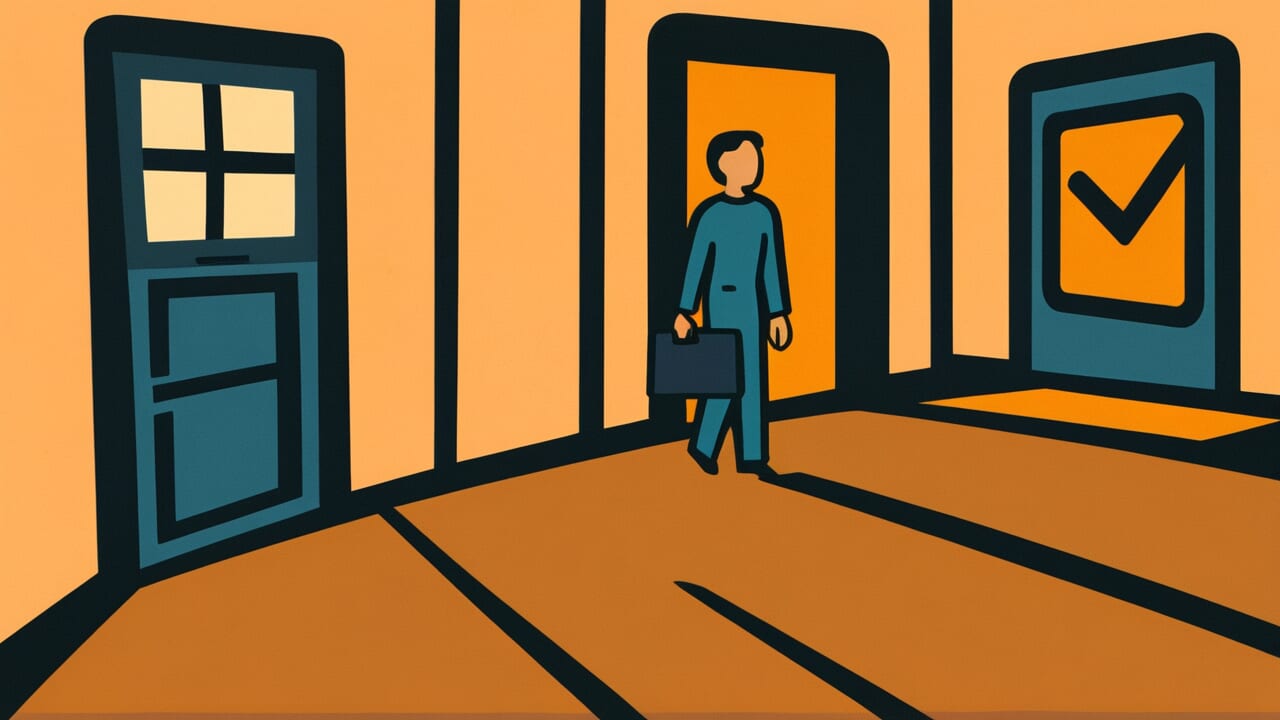How to Read “Now or never”
“Now or never”
[now or NEV-er]
This phrase is straightforward to pronounce with common English words.
Meaning of “Now or never”
Simply put, this proverb means you must act immediately or lose your chance forever.
The literal words create urgency through contrast. “Now” represents the present moment and immediate action. “Never” represents the complete absence of future opportunity. Together, they paint a picture of time running out. The message is clear: hesitation equals loss.
We use this phrase when facing critical decisions with tight deadlines. Job interviews, investment opportunities, and relationship moments often carry this weight. Someone might say it before asking for a promotion or confessing feelings. The phrase appears in sports when teams need last-minute scores. It captures those pivotal moments when delay means defeat.
What makes this wisdom powerful is its recognition of time’s limits. Many people struggle with decision-making and prefer to wait for perfect conditions. This proverb reminds us that perfect timing rarely exists. Sometimes the current moment, imperfect as it seems, represents our only real chance. The phrase forces us to weigh the risk of action against the certainty of lost opportunity.
Origin and Etymology
The exact origin of this specific phrase is unknown, though similar expressions have existed for centuries.
The concept appears in various forms throughout history when people faced urgent decisions. Ancient military leaders understood that battlefield opportunities vanished quickly. Merchants knew that market conditions changed rapidly. The idea that timing determines success has always been part of human experience. Written records show similar phrases appearing in English literature by the 1600s.
The phrase gained popularity during times of rapid social change. Industrial revolutions created new opportunities that disappeared quickly. Immigration waves forced families to make sudden decisions about their futures. Wars and economic shifts made timing crucial for survival. The modern three-word version became common in American English during the 1800s and 1900s.
Interesting Facts
The phrase uses a rhetorical device called “false dilemma” by presenting only two extreme options. This creates psychological pressure by eliminating middle ground. The contrast between “now” and “never” makes the choice feel more urgent than it might actually be. This linguistic technique appears in many motivational phrases and advertising slogans.
Usage Examples
- Coach to athlete: “The championship tryouts start in five minutes – Now or never.”
- Parent to teenager: “The college application deadline is tonight at midnight – Now or never.”
Universal Wisdom
This proverb reveals a fundamental tension in human psychology between our desire for security and our need for progress. We naturally prefer certainty and complete information before making decisions. Yet life rarely provides perfect conditions or unlimited time. This creates an eternal struggle between our cautious instincts and the reality of fleeting opportunities.
The wisdom addresses a core survival mechanism that served our ancestors well. Those who could recognize and seize critical moments had better chances of finding food, shelter, and mates. Hesitation in dangerous situations often meant death. Quick decision-making became embedded in human nature as an advantage. However, this same urgency can work against us when we rush into poor choices or create false pressure.
What makes this saying universally relevant is how it captures the paradox of timing in human experience. We cannot predict the future, yet we must act within it. We want guarantees, but opportunities come with uncertainty. The phrase acknowledges that some moments carry disproportionate weight in shaping our lives. It recognizes that the fear of making the wrong choice can become worse than making no choice at all. This tension between action and inaction defines many of our most important life decisions.
When AI Hears This
Opportunities behave like soap bubbles floating through time. They shimmer with possibility until someone tries to grab them. Most people see a static target waiting patiently. But opportunities actually shrink and change shape every second. The moment you hesitate, the bubble starts losing air. What looked perfect yesterday becomes impossible tomorrow.
Humans create elaborate mental maps of future chances. We tell ourselves better opportunities will come later. This thinking assumes the world stays frozen while we decide. But reality keeps moving and reshaping around us. Each passing moment eliminates certain combinations of circumstances. We don’t realize that waiting doesn’t preserve options. It actually destroys them.
This reveals something beautiful about human hope and fear. We desperately want to believe perfect timing exists somewhere ahead. So we gamble present reality against imaginary future perfection. It seems foolish, but this optimism drives all progress. Without believing tomorrow could be better, we’d never improve anything. The tragedy and magic live in the same moment.
Lessons for Today
Living with this wisdom requires developing better judgment about when urgency is real versus manufactured. Not every situation truly demands immediate action, despite how it might feel. Learning to distinguish genuine deadlines from artificial pressure helps prevent poor decisions made in false panic. The key lies in recognizing that while some opportunities are indeed fleeting, others return in different forms.
The phrase works best when we understand our own patterns of hesitation and procrastination. Some people naturally rush into decisions and need reminders to slow down. Others endlessly delay and need encouragement to act. Knowing which tendency you have helps you use this wisdom appropriately. When you recognize a pattern of letting good opportunities slip away due to overthinking, the phrase becomes a useful tool for breaking that cycle.
At a deeper level, this wisdom teaches us to make peace with imperfect timing and incomplete information. Life rarely offers ideal conditions for major decisions. Accepting this reality reduces the anxiety that comes from waiting for certainty that never arrives. The phrase reminds us that taking action with 80% confidence often beats waiting forever for 100% certainty. Sometimes the willingness to act despite uncertainty becomes more valuable than having all the answers.



Comments